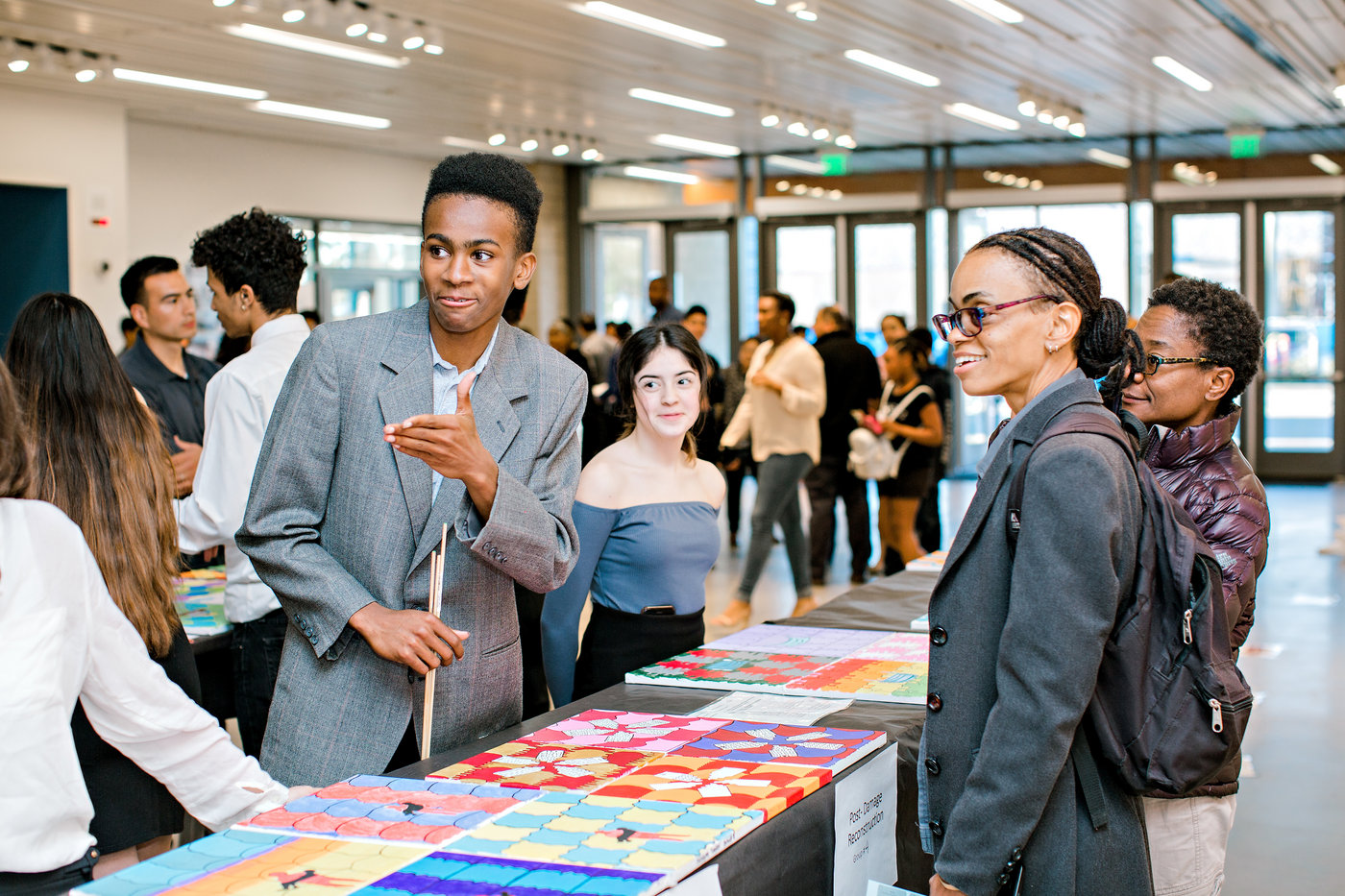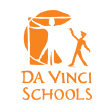
Discover what makes Da Vinci, well, Da Vinci
Da Vinci students are preparing for college, career and life simultaneously through a project-based, real world curriculum in a small, caring and compassionate school culture. Our signature programs and practices are recognized around the globe for providing highly personalized support, while fostering innovation in teaching and learning.
A spirit of caring and collaboration define our people and culture. We have fun together. We learn together. We grow together.
Our students and staff are celebrated for being their authentic self. We serve all students and honor where they are in their life and in education.
Da Vinci has many culture-building activities and meaningful rituals that bring students and staff close together, from regular shout-outs and celebrations, to First Day of School cheering and high-fives, Freshman Overnighter, Astro & Catalina Camps, Community Dialogue and Circles, Advisory Olympics, and so much more.
The purpose of Da Vinci's Real World Learning Program is to prepare students for success after high school and to launch them into financially stable and fulfilling lives.
Making real world connections is at the center of everything we do. From tackling real world problems in the classroom, to gaining hands-on experience via project consults, mentorships, internships and more, Da Vinci students learn by doing in the real world.
Our industry partners help identify the knowledge and employable skill sets that students need to know for in-demand jobs with opportunities for advancement.
Da Vinci's core courses are taught using a project-based, college-prep approach. Project-based learning is a learn-by-doing curriculum that integrates core subjects with real-life problems to be solved. Teachers work in teams with one another to identify content area essential skills that need to be addressed at the grade-level. Teachers work backwards to plan their curriculum, creating engaging, interdisciplinary projects that center on a big idea and a real-world connection that is rigorous, relevant and meaningful to students' lives. Students work in teams to create a final product that demonstrates mastery of content standards and a demonstration of key skills such as critical thinking, collaboration, and communication.
> See Personalization + Projects = Deeper Learning at Da Vinci
To prepare students for the workforce, Da Vinci high schools offer Career Technical Education (CTE) coursework as part of our core curriculum. The primary goal of Career Pathways is to equip students with the technical skills, knowledge and training they need to succeed in high-demand careers across a wide range of industry sectors. Da Vinci's industry partners help define the knowledge and employable skill sets students need to know for the modern workplace.
Surrounded by tech, aerospace and creative neighbors, Da Vinci offers 15 CTE pathways designed to prepare students for local industry.
Da Vinci Communications
Computer Science
Marketing
Multimedia Journalism
Media Production
Da Vinci Connect High
Entrepreneurship
Aviation - NEW
Da Vinci Design
Architecture
Graphic Design
Entrepreneurship
Fine Arts - NEW
Da Vinci Science
Mechanical Engineering
Civil Engineering
Biomedical Engineering
Da Vinci RISE
Digital Media - NEW
Mental Health - NEW
Presentations of Learning ("POLs") are a tradition at Da Vinci Schools in which students prepare and deliver a formal presentation to a panel of their teacher and peers. POLs give students the opportunity to develop their speaking and presentation skills and to reflect publicly on their understanding and mastery of content in their courses. Students are required to provide and explain how specific work they have completed (i.e., the evidence) demonstrates growth toward mastery, 21st century skills, and Habits of Heart and Mind. Because these are formal presentations, students are expected to wear formal attire. Family members, community members, board members, and all stakeholders are invited to attend POLs.
Exhibition is a public presentation of student work and an opportunity for our community to come together to witness and celebrate how much our students have learned and grown in the project-based environment. Exhibition Nights are an important component of project-based learning and assessment, and provide a comprehensive view of each student's knowledge and mastery of the curriculum.
Students have the opportunity to earn college credits and work toward an AA or Bachelor's degree for free while they are at Da Vinci, reducing the time and cost associated with college. At Da Vinci Connect High School, students begin their college journey as 9th graders. This innovative model combines hybrid learning with early college, social emotional learning and real world learning.
Rivet School with Da Vinci is a college and career program for Da Vinci seniors who opt to stay at Da Vinci to earn an Associate's, Bachelor's degree, or one-year of transferable college credit for free through Da Vinci's college partners, Southern New Hampshire University and Arizona State University (ASU). This program includes on-the-job work experience through internships, project consults, and boot camps in the community.
Da Vinci is committed to providing a pathway to associate and bachelor's degree completion without financial barriers.
Da Vinci Connect offers a unique homeschool-hybrid model in which students spend 2 days per week of project-based learning on campus and 3 days per week of homeschool. At DV Connect, families serve as co-educators and collaborative partners in their child/ren's education.
>> Learn more
Social-emotional learning is central to Da Vinci Connect. We have named our brand of social emotional learning as compassionate communication—strategies to teach and reinforce core concepts such as tolerance, compassion, self-efficacy, flexibility, self- responsibility, empathy, positive conflict resolution, and collaboration.
Restorative justice practices provide tertiary prevention, after the problem has occurred, with the intention of avoiding reoccurrence. Most importantly, restorative justice practices are meant to strengthen the community and promote growth in the individuals affected. We have the goal of reintegration and protection of the freedom of our students at the forefront. Restorative practices expands that effort with primary prevention (community building through circles and advisories), introduced before the problem has occurred. The key of restorative justice is to have a community to restore.
Community-building circles are a strong tool toward building culture that can be relied on and leveraged during challenging times. The point of these circles is to encourage authentic and challenging conversations in a productive and respectful manner. These circles will happen both as an entire community and as an advisory family. Advisory circles will focus on reflection (Holistic Community Healing), processing and feedback while the campus-wide circles will be focused on challenging topics and critical consciousness.
